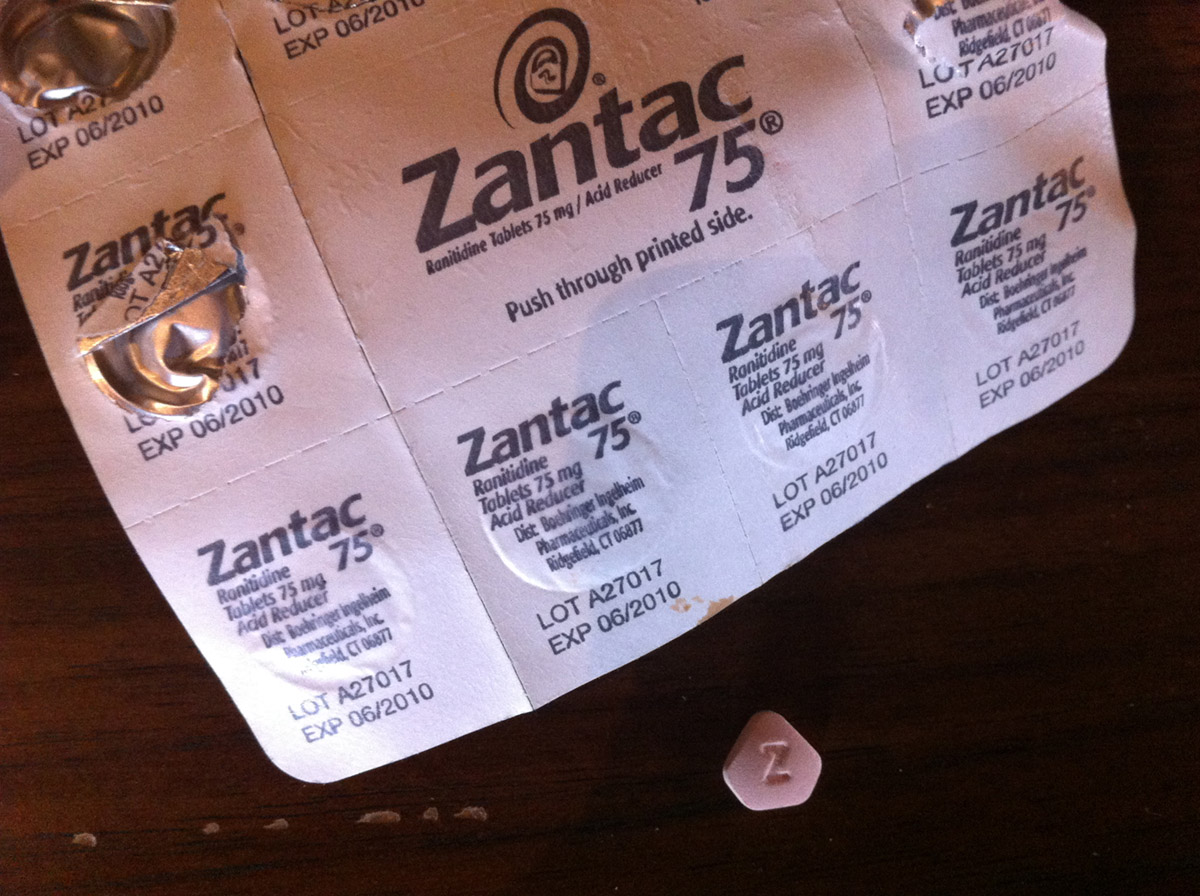
Ranitidine (Zinetac, Zantac) is used in prevention and treatment of ulcers in the stomach and intestines, in overproduction of stomach acid in gastroesophageal reflux disease (GERD) and other stomach acid problems that might cause heartburn. The medication belongs to the group of antihistamine medications (histamine-2 blockers) and it work by increasing the production of acid in thestomach.
Side effects of Ranitidine
Ranitidine has few side effects. Gastrointestinal problems are present at some patients including nausea, vomiting, diarrhea, abdominal pain and rarely pancreas problems.
This medication rarely seriously affects the liver, causing mild elevation of liver enzymes, sometimes affecting the liver cells. Liver toxicity is followed with fever, chills, nausea, rash and eosihophilia.
Some Ranitidine patients may be allergic to the drug, showing signs of rash, urticaria, fever, bronchospasm, edema, eosinophilia and acute eosinophilic pneumonia, and anaphylaxis.
The blood conditions related to the use of Ranitidine are usually reversible. There were cases of leukopenia, granulocytopenia, thrombocytopenia and rarely, agranulocytosis and anemias. There is greater risk of hematologic issues in patients with kidney dysfunctions.
The drug affects the hormones, and might lead to gynecomastia, impotence and decrease of libido in male patients. Some patients may suffer from increased levels of prolactin and gastrin, amenorrhea, and decrease of levothyroxine in the blood.
High concentrations of Ranitidine in the blood are responsible for changes in mental status of the patients. Sleepiness, dizziness, headache, malaise, vertigo and rarely confusion, agitation and hallucinations have been reported. Patients with kidney problems, elderly and patients suffering from other serious illnesses are at greater risk of brain side effects.
Dermatologic adverse effects of Ranitidine include: hair loss, rash, pruritus, contact dermatitis, erythema multiforme, vasculitis and toxic epidermal necrolysis.
Kidney conditions are rarely recorded. Patients with glaucoma problems may have blurred vision or high intraocular pressure when using Ranitidine. Some of the patients may experience joint or muscle pain. Ranitidine rarely affects the heart mostly causing arrhythmias.
Application of Ranitidine
Make sure to inform your doctor if you are allergic to any kind of medication. Liver and kidney problems or porhyria should also be reported to the doctor.
Use the medication exactly as doctor has prescribed it. Ranitidine tablets and effervescent tablets are meant to be dissolved in water and then taken. The medication needs time to heal the ulcers sometimes up to two months. After 6 weeks of treatment if your condition stays the same you should consult the doctor.
Avoid alcohol, because it may increase the risk of stomach problems.
In rare cases use of Ranitidine might increase the risk of pneumonia.
Sometimes early symptoms of a heart attack are mistaken for heartburn. Immediately call for medical attention if you happen to experience chest pain, dizziness, pain spreading to your left arm, shoulder or neck, sweating, nausea and vomiting, because these symptoms may be related to the heart attack.

















Your thoughts on this
Loading...